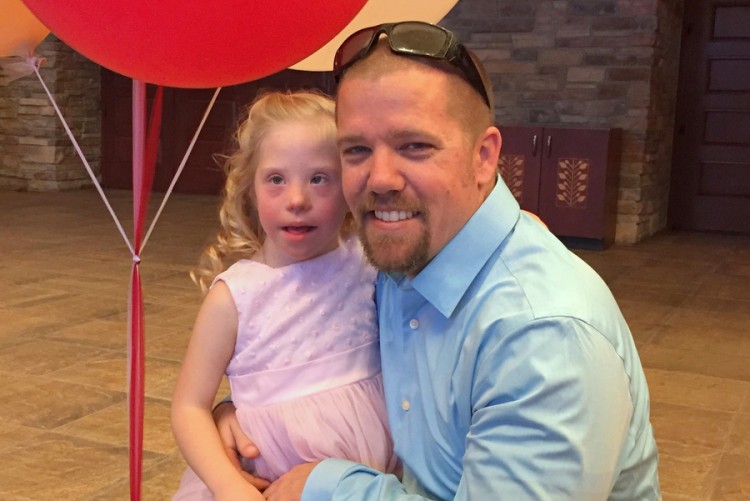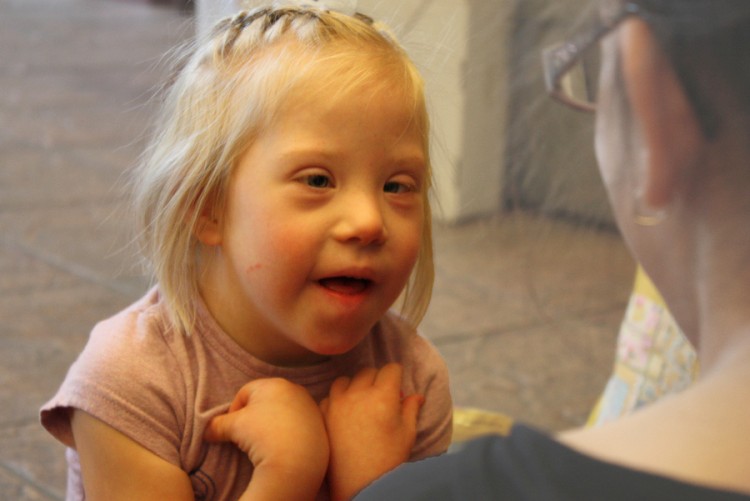Stereotypes never seemed to be an issue for me — that is, until I had my first kid. When my daughter, who was born with Down syndrome, was given only a 60 percent chance to survive in-utero, she surfaced my hidden stereotypes. Small stereotypes involving assumptions and limitations. This needed fixing. So my daughter took me to school on overcoming stereotypes.

While coaching and training millennials in their professional skill sets, I’m confronted with stereotypes once again. Thankfully, the lessons my daughter taught me have allowed me to not stereotype millennials either.
Stereotypes are everywhere. Contrary to popular belief, most stereotypes aren’t vicious and ugly, though. The majority of stereotypes society deals with are around the topic of assumptions and expectations, which force limitations. Everyone has stereotypes. Knowing it or not, we have them. The trick is identifying your stereotypes and overcoming them as quickly as possible.
The overarching stereotype my daughter taught me to overcome was the limitation of capability. I learned quickly not to project assumptions on my daughter when she was just a baby. She kept beating odds. Again and again, my daughter kept pushing the limits and wrecking any stereotypes that I may have had.
Stereotype is defined as a simplified and standardized conception or image invested with special meaning and held in common by members of a group. In essence, a stereotype is a generalization.
Below are seven lessons I learned from my daughter with Down syndrome on the topic of stereotyping:
1. “Differences” possess the power to pleasantly surprise you.
Anytime differences enter into a situation or conversation, they can come out of left field to shock you. My daughter’s “differences” have brought tears, joy and laughter in the moments of surprises. If you are willing to stay in the differences, be ready to be pleasantly surprised.

2. Perceived knowledge never matches experienced knowledge.
What you think you know rarely meets what you know through experience. Learning about people, groups and even organizations from a distance will never give you the full truth. Knowing someone or something through experience will always trump knowing from hearsay.
3. External expectations give back internal limitations.
Projecting expectations onto people impacts the person projecting more than the person receiving. External expectations can produce negativity, resentment, anger, disappointment and more. You aren’t only hurting others when you place expectations on them, you’re really hurting yourself.
4. General evaluation steals away personal understanding.
Following the majority shared viewpoint takes away the opportunity to really understand the uniqueness of a person. No one person is the same. Everyone has been created and shaped differently. Generalizations can only possess partial truth, if any. Know people and not their generalizations.
5. Other people’s stereotypes only have power if you choose so.
I may be stereotyped by other people, but I won’t allow that to have power in my life. As I teach my daughter through the future years, she will know to not give power to other people’s assumptions and personifications. You choose who you give power to, and I suggest you give power to yourself, not other people’s assumptions.
6. “Normal” is overrated and a fictitious reality.
No one can really classify normality. Sometimes it means average, median or generality. But is it the average of what the media is portraying or what friends are portraying? Normality isn’t all it’s cracked up to be. In fact, most of the time “normal” isn’t even real. Yet people keep striving for it.
7. “Abnormalities” have the ability to achieve extraordinary results.
Stepping outside of normality puts you in the position to accomplish something out of the ordinary called extraordinary. Don’t sweat not being “normal,” but leverage it to live in the extraordinary way of life, producing extraordinary results.
If you find yourself stereotyping, break out of it and start getting to know people. You just might be blown away.
A version of this post originally appeared on The Huffington Post.
Have you seen the first film with a national release to star a person with Down syndrome? Check out the film “Where Hope Grows” today!
Available for purchase on –> and –>.
The Mighty is asking the following: What’s one thing people might not know about your experience with disability, disease or mental illness, and what would you say to teach them? If you’d like to participate, please send a blog post to community@themighty.com. Please include a photo for the piece, a photo of yourself and 1-2 sentence bio. Check out our Submit a Story page for more about our submission guidelines.
